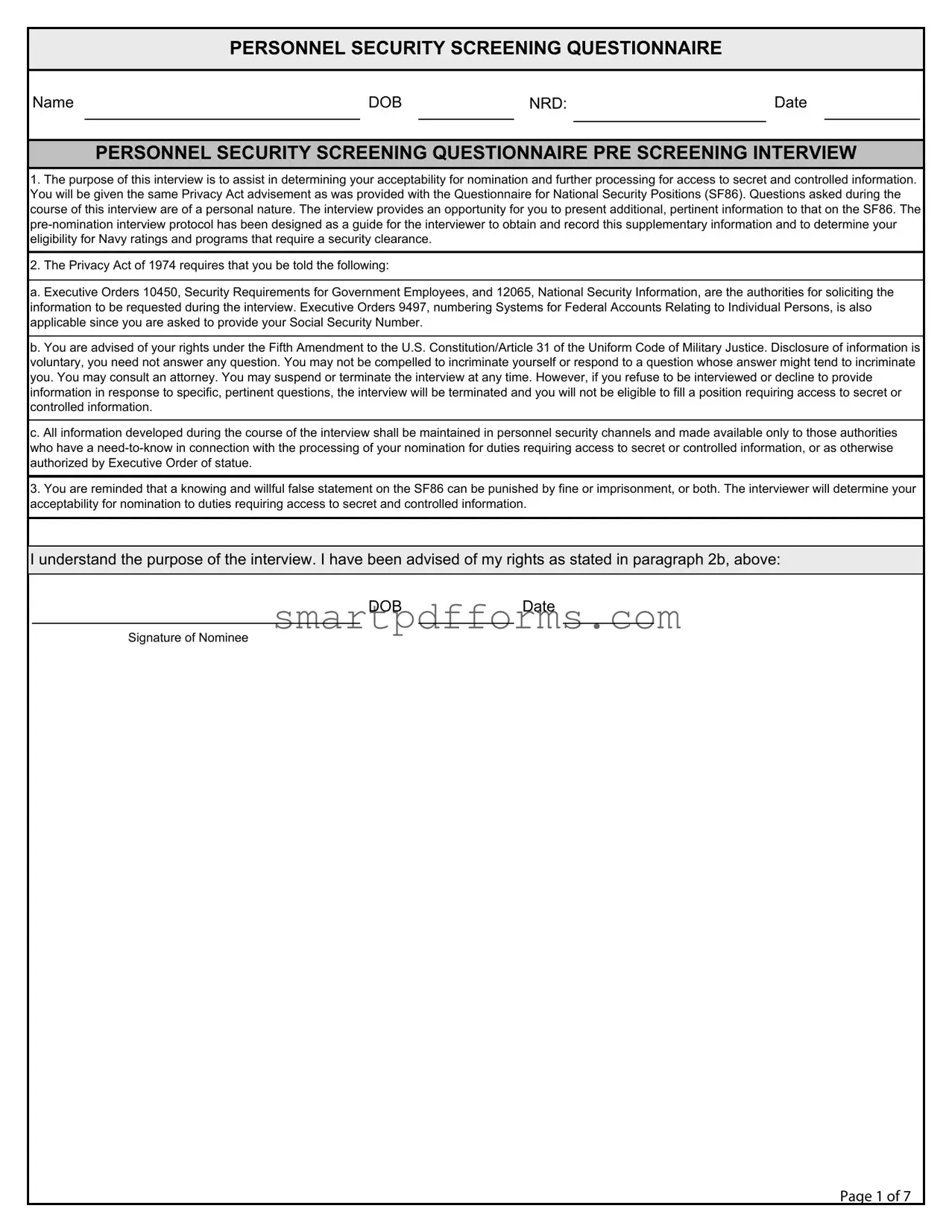Blank Pssq PDF Template
When it comes to securing sensitive positions within the government or military, the Personnel Security Screening Questionnaire, commonly known as the Pssq form, serves as a crucial first step in evaluating an individual's eligibility. This comprehensive document aims to gather detailed personal information and background data to assist in determining a candidate's suitability for access to secret and controlled information. Through a series of probing questions, the form covers a wide array of topics, from personal and family citizenship status to financial stability, criminal history, substance use, and even mental health. Candidates are expected to disclose information about any non-U.S. citizenships within their family, travels abroad, criminal activities among close contacts, past employment issues, financial delinquencies, and any involvement in illegal activities. The form is also very clear about the implications of providing false information, noting that such actions can be punishable by fines or imprisonment. With sections dedicated to personal information, police involvement, and financial statements, the questionnaire requires that all "yes" answers be elaborated upon in detail, ensuring a thorough vetting process. In essence, the Pssq form encapsulates a candidate's personal history and behaviors, serving as a preliminary filter in the security clearance process and highlighting the importance of integrity and transparency in positions of national security.
Preview - Pssq Form
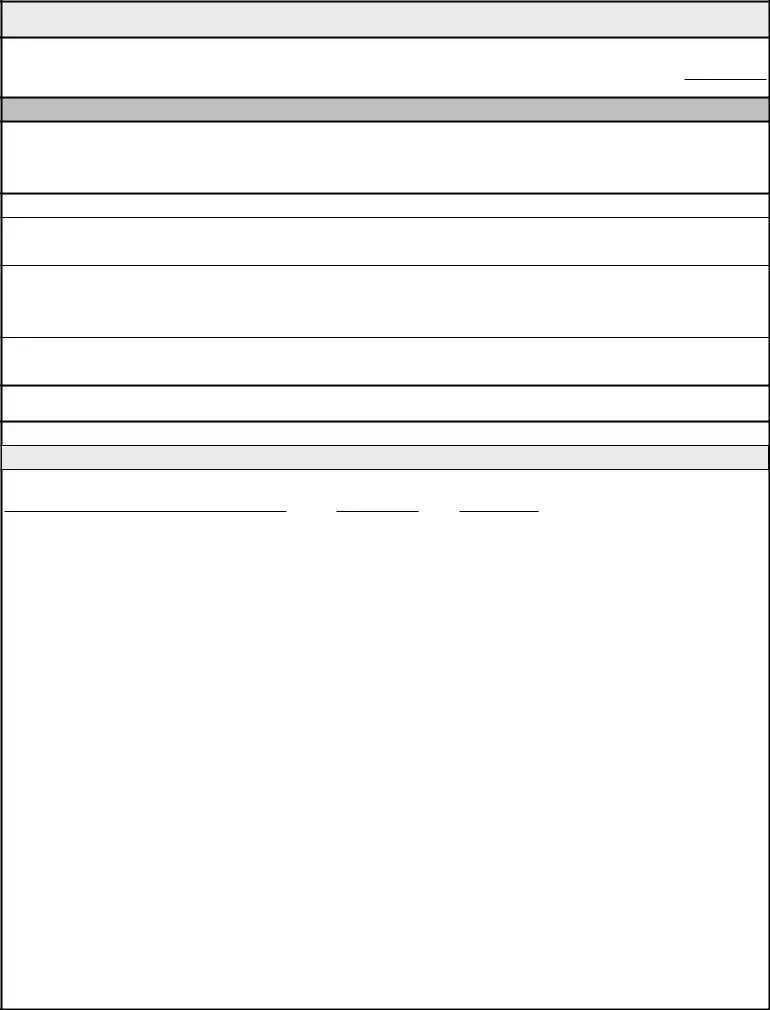
PERSONNEL SECURITY SCREENING QUESTIONNAIRE
Name |
|
DOB |
|
NRD: |
|
Date |
|
|
|
|
|
|
|
|
|
|
|
|
|
|
PERSONNEL SECURITY SCREENING QUESTIONNAIRE PRE SCREENING INTERVIEW
1.The purpose of this interview is to assist in determining your acceptability for nomination and further processing for access to secret and controlled information. You will be given the same Privacy Act advisement as was provided with the Questionnaire for National Security Positions (SF86). Questions asked during the course of this interview are of a personal nature. The interview provides an opportunity for you to present additional, pertinent information to that on the SF86. The
2.The Privacy Act of 1974 requires that you be told the following:
a. Executive Orders 10450, Security Requirements for Government Employees, and 12065, National Security Information, are the authorities for soliciting the information to be requested during the interview. Executive Orders 9497, numbering Systems for Federal Accounts Relating to Individual Persons, is also applicable since you are asked to provide your Social Security Number.
b. You are advised of your rights under the Fifth Amendment to the U.S. Constitution/Article 31 of the Uniform Code of Military Justice. Disclosure of information is voluntary, you need not answer any question. You may not be compelled to incriminate yourself or respond to a question whose answer might tend to incriminate you. You may consult an attorney. You may suspend or terminate the interview at any time. However, if you refuse to be interviewed or decline to provide information in response to specific, pertinent questions, the interview will be terminated and you will not be eligible to fill a position requiring access to secret or controlled information.
c. All information developed during the course of the interview shall be maintained in personnel security channels and made available only to those authorities who have a
3.You are reminded that a knowing and willful false statement on the SF86 can be punished by fine or imprisonment, or both. The interviewer will determine your acceptability for nomination to duties requiring access to secret and controlled information.
I understand the purpose of the interview. I have been advised of my rights as stated in paragraph 2b, above:
DOBDate
Signature of Nominee
Page 1 of 7
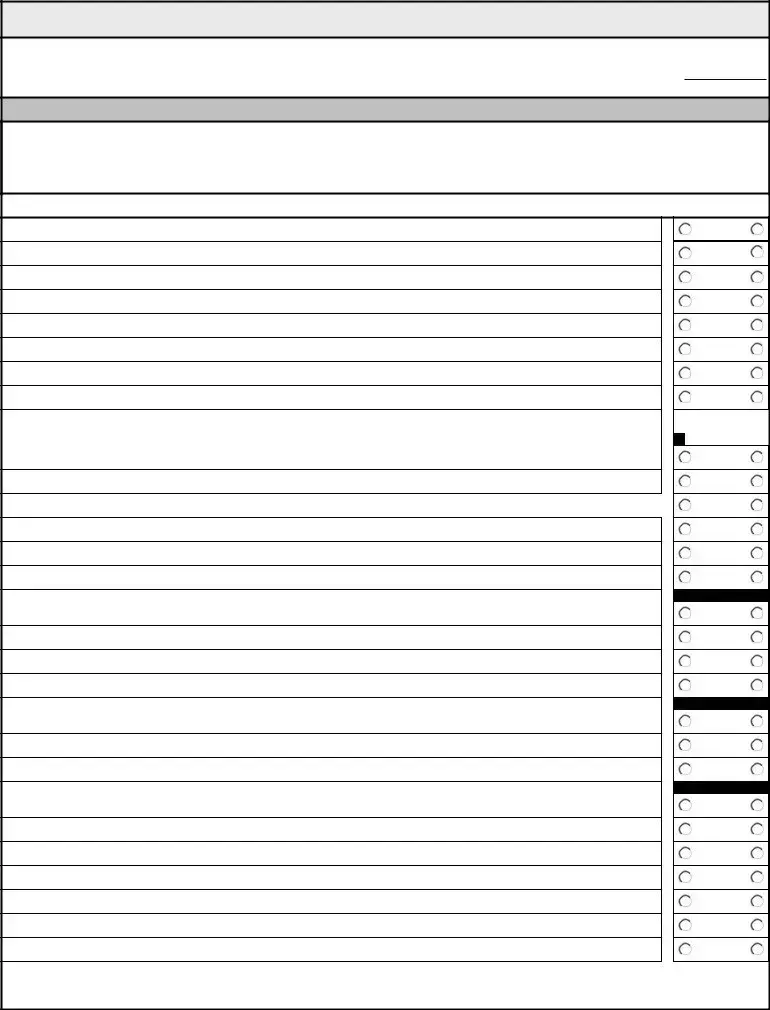
PERSONNEL SECURITY SCREENING QUESTIONNAIRE
Name |
|
DOB |
|
NRD: |
|
Date |
|
|
|
|
|
|
|
|
|
|
|
|
|
|
INTRODUCTION
You are here today because you either enlisted with a guaranteed skills job or are being considered for one because of your qualifications. Since these jobs involve matters of national security, it is imperative that you answer the questions on this questionnaire honestly. Your answers to these questions will determine how extensive your interview will be when you are called.
PERSONAL INFORMATION |
Yes |
No |
|
|
|
1. Are you, any of your family members and/or anyone you have lived with, not a citizen of the U.S.?
2. Were any of your family members born outside the U.S.? Does not include births abroad of U.S. parents.
3. Do you have any friends, relatives or know persons who are U.S. citizens that live outside of the U.S.?
4. Do you or any family members maintain or claim dual citizenship with a country other than the U.S.?
5. Have you ever traveled outside of the U.S., including Canada or Mexico, for any purpose?
6. Do you have any friends or relatives that are involved in any criminal misdemeanor and felony activities?
7. Do you have any friends or relatives that are presently in jail, prison, parole or probation?
8. Have you ever been rejected by any branch of the armed forces for enlistment or affiliation due to any reason other than medical?
9. Have you ever been charged or punished under the UCMJ, received
10. Have you ever been fired from a job?
11. Have you ever left a job under other than favorable conditions (left due to allegations of misconduct or bad performance)?
12. During high school or college, were you ever suspended, expelled, or disciplined for any reason?
13. Have you ever had any bills turned over to a collection agency?
14. Have you ever paid a bill more than 30 days late or not at all?
15. Have you ever bounced a check, overdrawn your debit card, had a credit card recalled, anything repossessed or voluntarily surrendered to a creditor?
16. Have you ever filed for bankruptcy?
17. Have you ever had debt judgments or liens filed against you?
18. Do you owe any individual or persons money, for any reason?
19. Does your monthly payment debt (i.e. credit cards, car payments, insurance, medical bills, record/health/book clubs, etc.) exceed 50 percent of your monthly income?
20. Have you ever received an Other Than Honorable discharge from any branch of the military?
21. Have you ever shoplifted or stolen anything, whether charged or not?
22. Have you ever been charged with or convicted of a felony, misdemeanor, or any offense other than traffic violations (whether the charges were dropped or not)?
23. Are there any charges pending against you now?
24. Have you ever used, bought, sold, grown, manufactured or possessed marijuana?
25. Have you ever used, possessed or experimented with any type of controlled substance, narcotic or drug, other than marijuana?
26. Have you ever taken someone else’s prescription medication.
27. Have you ever been convicted of an alcohol related offense?
28. Have you ever been told to enter, or have you ever been in an alcohol or drug program?
Page 2 of 7
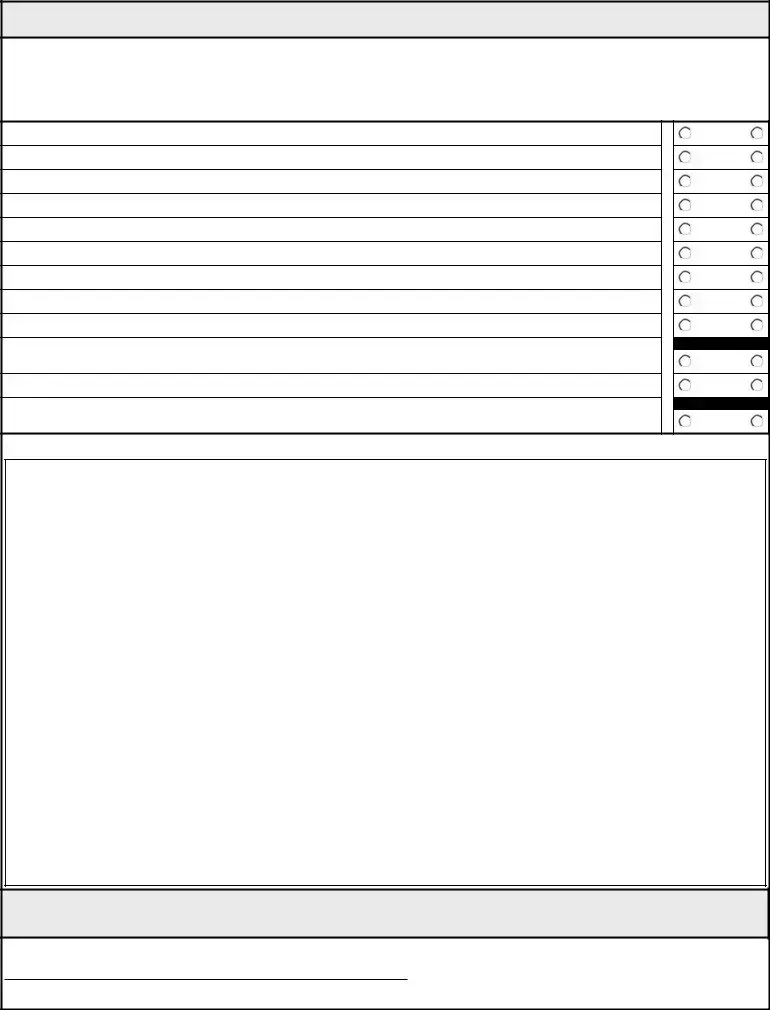
PERSONNEL SECURITY SCREENING QUESTIONNAIRE
Name |
|
DOB |
|
NRD: |
Date |
|
|
||
|
|
|
|
|
|
|
|
|
|
|
|
|
|
|
|
||||
|
|
|
|
|
|||||
|
PERSONAL INFORMATION (CONT) |
Yes |
No |
|
|||||
|
|
|
|
|
|
|
|
|
|
29. Have you ever been arrested, cited, fired, or reprimanded because of your use of alcohol?
30. Have you ever been seen by or consulted with a mental health professional, counselor, psychologist or psychiatrist for any reason?
31. Have you ever been hypnotized?
32. Have you ever suffered from dizziness, loss of consciousness, blackouts, been knocked out, fainted, or had any head injuries?
33. Have you ever had serious thoughts about suicide or have you attempted suicide?
34. Have you ever been treated for anxiety, depression or stress?
35. Have you ever been involved in any deviant sexual behavior?
36. Have you ever destroyed or vandalized any property or possessions of others?
37. Have you ever been charged or convicted of a firearms, weapons, or explosives offense?
38. Have you ever done anything in your lifetime someone might blackmail you with, such as engaged in
39. Has anyone at anytime told you or suggested that you withhold or not reveal any information about yourself?
40. Is there anything that we have not asked you or that you have not told us that could possibly come up during an investigation that could cause you a problem?
ALL "YES" ANSWERS MUST BE EXPLAINED IN DETAIL IN THIS SECTION.
The answers I have provided are true, complete, and correct to the best of my knowledge and
belief. I have not intentionally provided any incorrect or misleading information.
Signature
Page 3 of 7
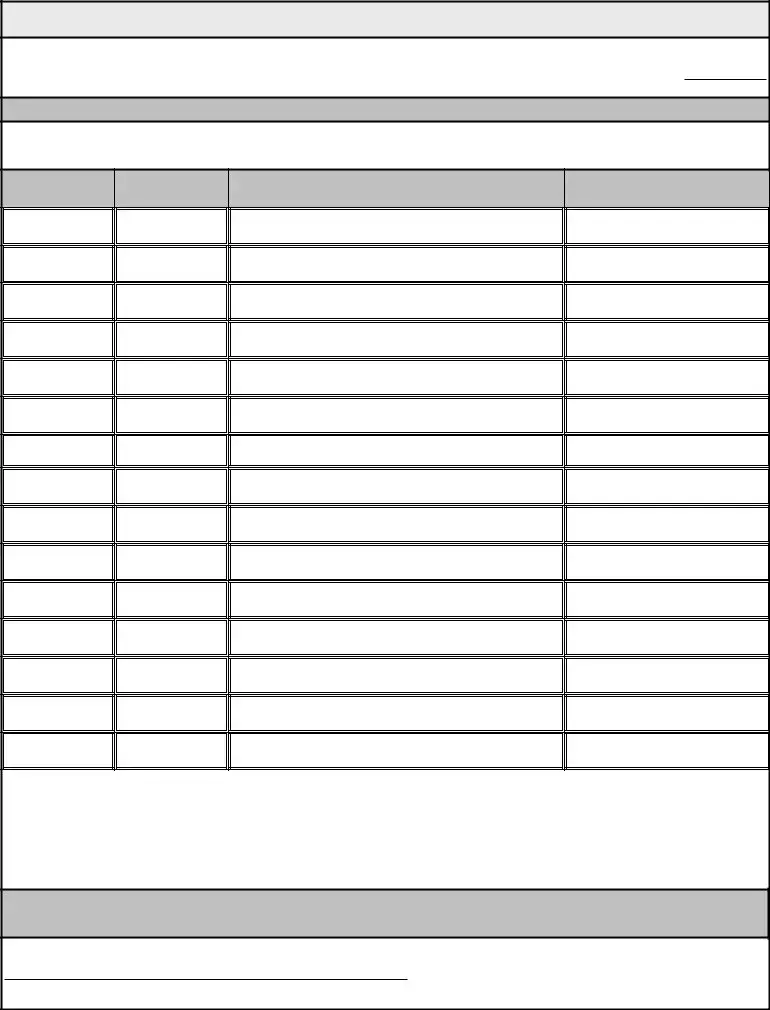
PERSONNEL SECURITY SCREENING QUESTIONNAIRE
Name |
|
DOB |
|
NRD: |
|
Date |
|
|
|
|
|
|
|
|
|
|
|
|
|
|
POLICE INVOLVEMENT
41.List every time you have been stopped detained, held, ticketed, arrested, warned or questioned by the police for any reason, whether charged or not, or told it was expunged, in chronological order.
DATE
PLACE
CITY/STATE
OFFENSE
FINAL DISPOSITION/ FINED AMOUNT/ DISMISSED/TRAFFIC SCHOOL/ETC.)
The answers I have provided are true, complete, and correct to the best of my knowledge and
belief. I have not intentionally provided any incorrect or misleading information.
Signature
Page 4 of 7
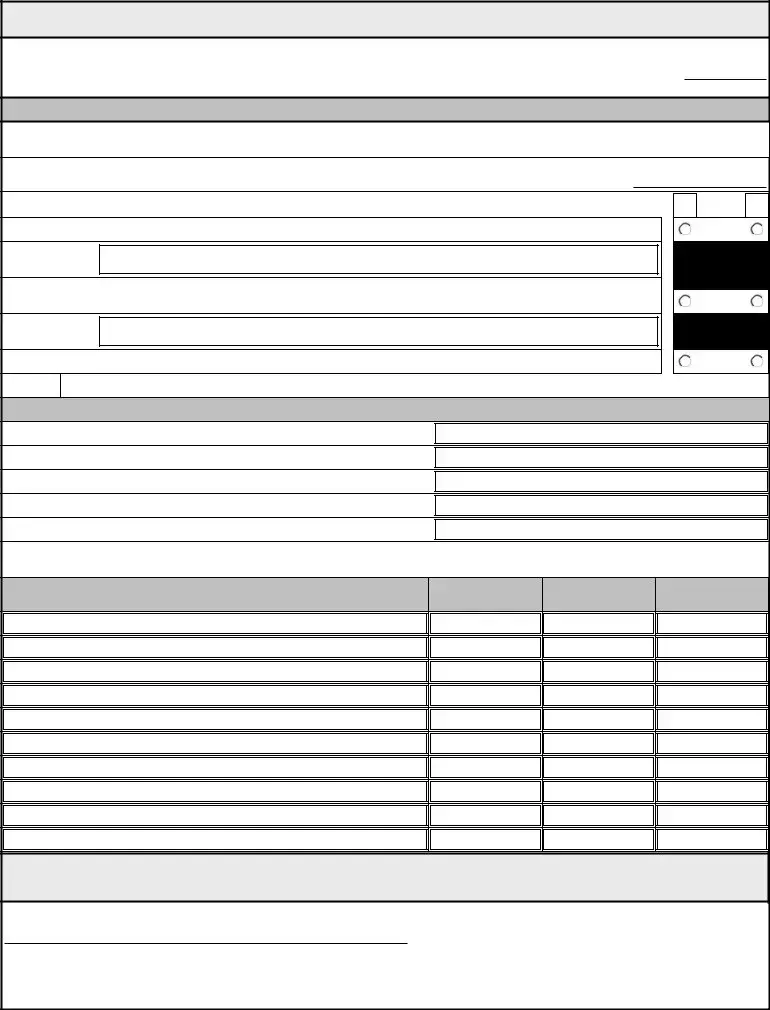
PERSONNEL SECURITY SCREENING QUESTIONNAIRE
Name |
|
DOB |
|
NRD: |
|
Date |
|
|
|
|
|
|
|
|
|
|
|
|
|
|
FINANCIAL STATEMENT
This form is to be completed by all candidates who require an eligibility interview for an SSBI or entry into a rating/program that requires a security clearance.
Recruiter |
|
|
Classifier |
District |
|
|
MEPS |
||
|
|
|
|
|
|
|
|
|
|
|
|
|
|
|
|
|
|
|
|
Yes
42. Have you filed federal income tax returns every year that you worked and should have filed a return?
If No, Explain
43. Have you filed state income tax returns every year that you worked and should have filed a return (provided the state you are from has a state tax)?
If No, Explain
44. Do you have overdue federal and/or state taxes from past years?
If yes, list
Amount Owed |
Status |
Year Owed |
To What Agency |
|
|
|
|
|
|
|
|
|
|
|
|
|
|
|
|
|
|
|
|
|
|
|
|
|
|
|
|
|
|
|
|
|
|
|
|
|
|
|
|
No
45.List any amounts owed to anyone including, but not limited to, banks, credit unions, stores, schools, charge cards, utilities, landlords, personal loans, student loans,
Full Name of Financial Institute
(company)
Balance on Account
Monthly Payment
Date of Most Recent
Payment
The answers I have provided are true, complete, and correct to the best of my knowledge and
belief. I have not intentionally provided any incorrect or misleading information.
Signature
Page 5 of 7
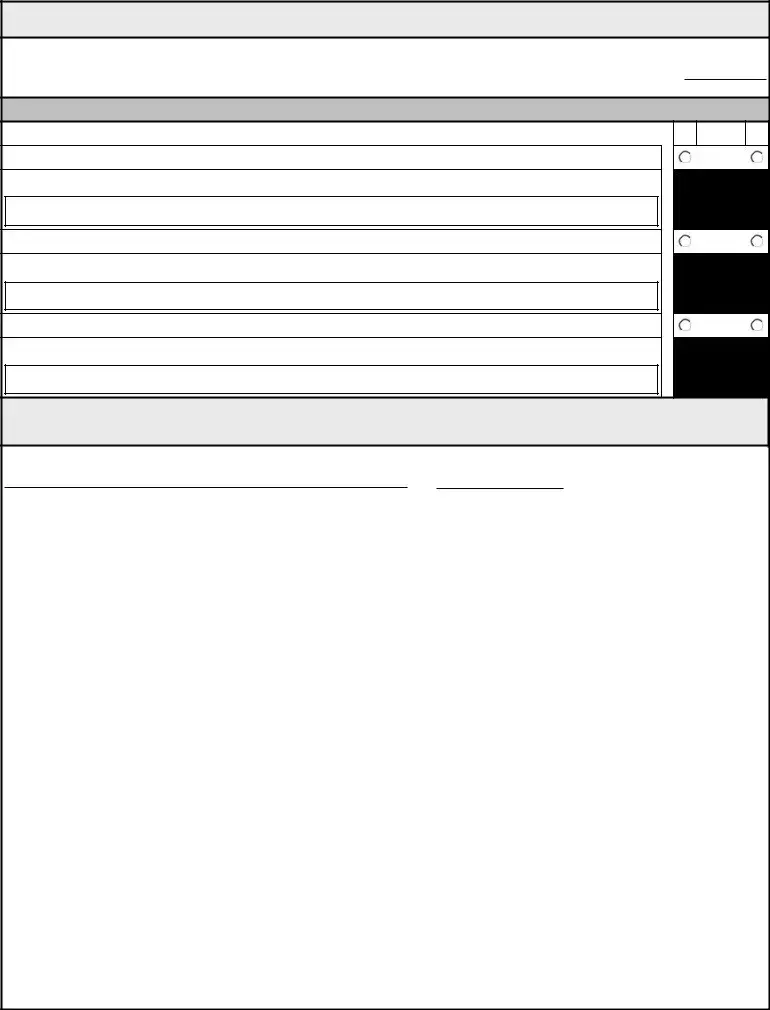
PERSONNEL SECURITY SCREENING QUESTIONNAIRE
Name |
|
DOB |
|
NRD: |
|
Date |
|
|
|
|
|
|
|
|
|
|
|
|
|
|
FINANCIAL STATEMENT (CONT)
Yes
46. Have you ever filed or declared bankruptcy?
If yes, show type, court where filed, amount involved and/or status of debts.
47. Have you ever had anything repossessed or have you ever voluntarily surrendered any item?
If yes, describe item involved, date of repossession/surrender, monthly payment,balanced owed, and number of months behind when repossessed/surrendered.
48. Have you ever had any debts turned over to a collection agency?
If yes, show account number, agency name, location, balance, months behind when debt assigned to collection agency, and current amount owed.
I certify that the above is a true statement of my financial status.
Signature |
Date |
No
Page 6 of 7
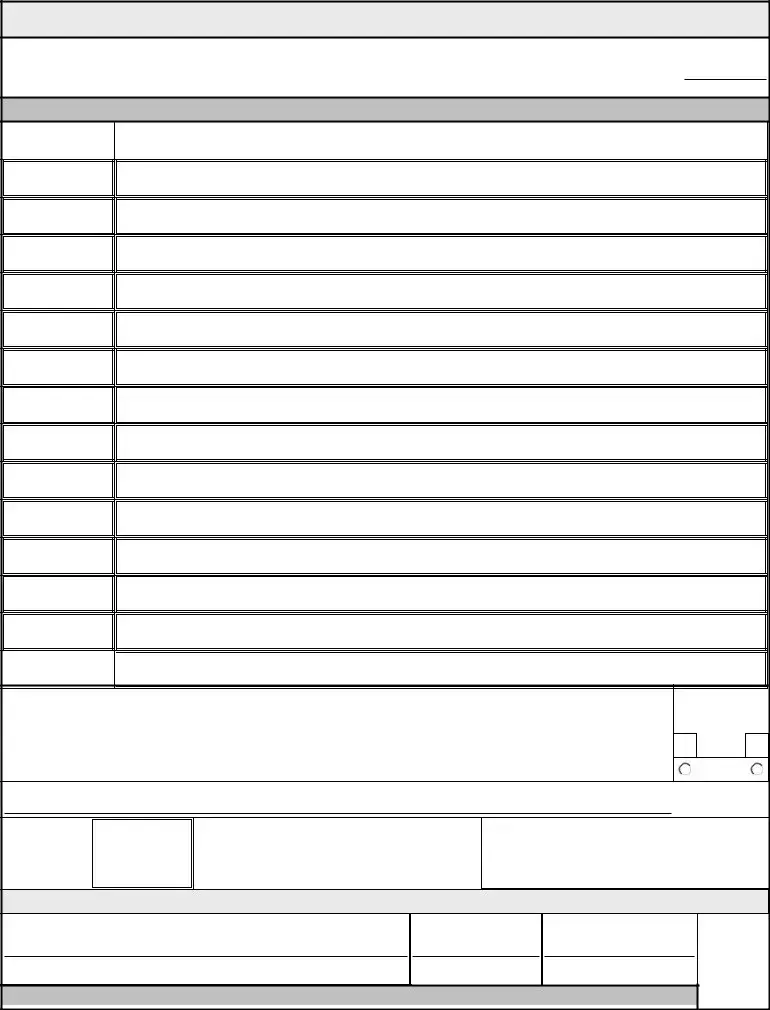
PERSONNEL SECURITY SCREENING QUESTIONNAIRE
Name |
|
DOB |
|
NRD: |
|
Date |
|
|
|
|
|
|
|
|
|
|
|
|
|
|
INTERVIEWER'S COMMENTS
Item Number
Comments
|
|
|
|
|
|
|
|
|
|
|
|
|
INTERVIEWERS PRINTED NAME |
TITLE/POSITION: |
|||
|
|
|
|
|
|
Based on the applicants responses to this questionnaire and my interview, I have determined the applicant is (qualified / not qualified) for entry into the
Q
NQ
Rating/Program
Rating Security Manager contacted on
Applicant is
 APPROVED
APPROVED
 DISAPPROVED
DISAPPROVED
 RATING SECURUITY MANAGER NOT CONTACTED
RATING SECURUITY MANAGER NOT CONTACTED
Interviewers Signature , Date and Contact Phone Number
Signature
Date
Phone Number
RETAIN A COPY OF THE PSSQ IN THE APPLICANT’S RESIDUAL FILE
Page 7 of 7
Form Data
| Fact Name | Detail |
|---|---|
| Purpose of Interview | The interview assists in determining the nominee's acceptability for access to secret and controlled information. |
| Governing Laws and Orders | Guided by Executive Orders 10450, 12065 for security requirements and information solicitation, and Executive Order 9497 for Social Security Number usage. |
| Privacy Act Advisement | Nominees are advised of their rights under the Fifth Amendment and Article 31 of the Uniform Code of Military Justice, including the right to not incriminate oneself. |
| Consequences of Non-participation | Failure to participate or provide information can terminate the interview and eligibility for positions requiring access to secret information. |
| Maintenance of Information | Information obtained is kept within personnel security channels, accessible only to those with a need to know. |
| Risks of False Statements | Knowingly and willfully making false statements can result in fines or imprisonment, or both. |
| Personal Information Questions | Questions cover citizenship, family background, travel, legal, financial, and behavioral history to assess security clearance eligibility. |
| Financial Disclosure | Candidates must disclose federal and state tax filing histories, overdue taxes, and all amounts owed to institutions or individuals. |
Instructions on Utilizing Pssq
Filling out the Personnel Security Screening Questionnaire (PSSQ) is a vital step toward securing a position that requires access to sensitive or controlled information. The process to complete this form should be approached with care, ensuring that every answer is honest and as accurate as possible. Misrepresentation or omissions can have serious implications. Here are the steps needed to complete the form effectively.
- Start by providing personal details including your full Name, Date of Birth (DOB), and Naval Recruiting District (NRD), and the current Date on the first page of the questionnaire.
- Read the pre-screening interview section carefully, understanding the purpose behind the interview and the rights and privacy expectations outlined. Acknowledge understanding by signing where indicated.
- Enter the personal information section. Answer a series of questions, marked as yes or no, related to citizenship, family background, travel history, criminal history, employment history, financial conduct, and other personal behaviors. Provide extra detail in the space given for any answer marked "yes."
- Proceed to the section labelled POLICE INVOLVEMENT. List all instances of police interaction in the order they occurred, including the date, place, offense, and the outcome. Sign to confirm the accuracy and completeness of this information.
- In the FINANCIAL STATEMENT section, respond to questions concerning your tax filing history, overdue taxes, and listing out debts. This area requires specifics including amounts owed, to whom, and current status.
- Review each section meticulously before signing to verify that all provided answers are true and complete to the best of your knowledge.
After completing and reviewing your questionnaire, ensure to submit it as instructed by your contact point or recruiting officer. This step is crucial for the progression of your application for positions requiring a higher degree of trust and responsibility. Remember, accuracy and transparency in completing the PSSQ are fundamental to the screening process.
Obtain Answers on Pssq
-
What is the Personnel Security Screening Questionnaire, and why do I need to fill it out?
The Personnel Security Screening Questionnaire is a comprehensive form designed to evaluate your suitability for positions that require access to secret and controlled information. It covers various personal aspects, including your family background, financial status, legal history, and more. The reason for its thorough nature is to protect national security interests by ensuring that those given access to sensitive information are of the highest integrity and reliability.
-
What happens during the pre-screening interview mentioned in the questionnaire?
During the pre-screening interview, you will discuss the information you've provided in the questionnaire in more detail. This is an opportunity to clarify any answers and provide additional context where necessary. The interview also allows the interviewer to gauge your honesty and suitability for a security clearance. Remember, your rights, including the right against self-incrimination and the right to terminate the interview at any time, are protected throughout this process.
-
Are there any consequences for refusing to provide information or terminating the interview?
Yes, if you refuse to provide specific information or choose to terminate the interview, it may result in the termination of the interview process itself. Consequently, this could disqualify you from eligibility for positions requiring access to secret or controlled information. It's important to carefully consider your willingness to participate in this process given its implications on your potential employment.
-
How should I answer the questions about my financial history and current situation?
Your financial history and current situation are integral parts of the security screening process. You should answer all questions truthfully, including disclosures about any debts, bankruptcies, or financial difficulties. Complete transparency is crucial, as it demonstrates your honesty and integrity, which are key factors in assessing your eligibility for security clearance.
-
What if I have made mistakes in the past, like being arrested or having financial issues? Will these automatically disqualify me?
Not necessarily. The purpose of the questionnaire and the subsequent interview is not only to uncover past mistakes but also to understand the context around those mistakes and any steps you've taken to address them. Honesty is highly valued in this process, and being upfront about past issues can be seen in a positive light. Every case is evaluated on an individual basis, taking into consideration factors like the nature of the issue, how long ago it happened, and evidence of rehabilitation or positive changes.
Common mistakes
Filling out a Personnel Security Screening Questionnaire (PSSQ) is a critical step for security clearance and access to sensitive information, yet mistakes can easily occur. By paying close attention and avoiding these common pitfalls, individuals can navigate the process more smoothly.
Not reading the instructions carefully: The document contains detailed guidance that should be followed meticulously to ensure the submission is completed correctly.
Providing incomplete answers: Every question should be answered fully and truthfully, even if the question seems irrelevant or personal.
Omitting required signatures and dates: An unsigned or undated form can be considered invalid and may delay the process.
Skiping questions related to personal information: All sections, especially those concerning personal history and affiliations, must be completed.
Overlooking the need to declare foreign travel or contacts: It is crucial to disclose any foreign travels or contacts, as omitting this information could be seen as withholding relevant security information.
Forgetting to list all financial obligations: This includes debts, loans, and financial judgments, which are necessary to assess financial reliability.
Not providing details for any criminal history: Even if charges were dropped or expunged, any police interactions must be detailed accurately.
Failure to mention past employment issues: Including being fired or leaving a job under unfavorable circumstances requires full disclosure.
Neglecting to detail mental health consultations or treatments: Honesty about one's mental health history is critical for the assessment.
Not asking for clarification if needed: When in doubt about what a question is asking, it is better to seek clarification than to guess and potentially provide incorrect information.
Avoiding these mistakes can greatly improve the accuracy and integrity of the application. If you are ever unsure about a section, it is highly advisable to consult with a professional or refer back to the instructions provided within the questionnaire itself. Remember, accuracy and honesty are paramount in completing the PSSQ successfully.
Documents used along the form
When someone is going through the security clearance process, particularly for positions requiring access to classified information or for certain military roles, the Personnel Security Screening Questionnaire (PSSQ) is just one part of a comprehensive suite of documents and forms they may need to complete. These documents play crucial roles in verifying an individual's background, financial status, and overall suitability for roles that demand high levels of trust and confidentiality.
- Standard Form 86 (SF-86), Questionnaire for National Security Positions: This detailed form collects information about the individual's background, including past residences, employment history, foreign travel, and more, as part of the security clearance process.
- Authorization for Release of Information (Form SF-312): A legally binding document where the individual agrees not to disclose classified information without proper authorization.
- Fingerprint Cards: Used to conduct background checks through various databases to ensure there are no significant criminal activities that would impact the individual’s suitability.
- Credit Report Authorization Form: Allows the agency conducting the clearance to check the credit history of the individual, looking for signs of financial instability that could make them a security risk.
- Foreign Contacts Disclosure Form: Individuals must disclose any close and continuing contact with foreign nationals, which helps assess potential foreign influence risks.
- Release of Medical Information Form: In some cases, individuals may need to authorize the release of specific medical records to verify information that could affect their ability to hold a security clearance.
- Drug Use Statement: An affidavit or statement where the individual must disclose past drug use, providing details that can be crucial for the clearance process.
- Personal References Statement: Applicants are often required to provide a list of personal references who can vouch for their character, reliability, and trustworthiness.
Completing these forms accurately and honestly is crucial in the security clearance process. Misrepresentations or omissions can lead to the denial of a clearance. It’s also important to understand that these are just components of an extensive vetting process, which can include interviews, background checks, and more, depending on the level of clearance required. The goal is always to ensure that individuals who are granted access to classified information are thoroughly vetted and deemed trustworthy of such access.
Similar forms
The Questionnaire for National Security Positions (SF86) is quite similar to the Personnel Security Screening Questionnaire. It serves a parallel purpose in evaluating an individual's suitability for accessing classified information. Similar to the PSSQ, SF86 asks about personal contacts, foreign travel, and financial history to assess potential security risks. Both documents require detailed personal information to help in the security clearance process, ensuring that individuals have the integrity to handle sensitive information.
The Security Clearance Application (SF85) is another document resembling the PSSQ. While it is generally used for positions that don't require access to classified information but still necessitate a trustworthiness evaluation, it asks for personal data, employment history, and criminal records, akin to the PSSQ. Both forms are crucial in the vetting process for personnel who will occupy positions of trust within the federal government.
The Electronic Questionnaires for Investigations Processing (e-QIP) system often contains forms that mirror the content of the PSSQ. e-QIP facilitates the electronic submission of standard investigative forms required for background checks for federal employment, security clearances, and military service. It includes sections on personal information, foreign contacts, and financial history, similar to those in the PSSQ, streamlining the process of gathering necessary security information.
The Foreign Contacts and Travel Reporting Form also shares similarities with the PSSQ. This form, used by individuals with security clearances to report foreign contacts and travel, focuses on areas crucial for maintaining national security. Like the PSSQ, it assesses the potential for foreign influence and evaluates the risk someone might pose based on their interactions and travel, ensuring individuals are not compromised or pose a security risk.
The Financial Disclosure Form, required in many sensitive positions, parallels the PSSQ's financial sections. It asks for detailed personal financial information to identify potential vulnerabilities or conflicts of interest. Both documents understand that financial stability and transparency are crucial in determining an individual's eligibility and reliability for a position requiring trust and security clearance.
Dos and Don'ts
When completing the Personnel Security Screening Questionnaire (PSSQ), it is crucial to approach the process with attention and integrity. Here are several dos and don'ts to consider:
- Do thoroughly read each question to understand what is being asked before answering.
- Do not rush through the questionnaire, as missing information might lead to delays or complications in your security screening process.
- Do provide complete and accurate information to the best of your knowledge. If a question is not applicable, it's essential to note it clearly.
- Do not withhold information or lie on the questionnaire. Omissions or falsehoods can have serious implications, including eligibility for positions requiring security clearances.
- Do review the Privacy Act Statement provided in the form to understand how your information will be used and protected.
- Do not forget to list all relevant instances as required in sections about personal information, police involvement, and financial statements. If any section requires an explanation for "Yes" answers, ensure those are detailed and clear.
- Do take the time to gather any necessary documentation or information before filling out the questionnaire to ensure your answers are accurate and comprehensive.
- Do not sign the questionnaire until you have reviewed all your answers and are confident they are truthful and complete. Remember, knowingly making a false statement can be punishable by law.
Following these guidelines can help ensure your PSSQ is correctly filled out, fostering a smoother and more efficient security screening process.
Misconceptions
Many people have misconceptions about the Personnel Security Screening Questionnaire (PSSQ) process. Understanding what the PSSQ entails is crucial for accurate completion and submission. Below are ten common misconceptions about the PSSQ form:
- Only military personnel need to complete it: The PSSQ is not solely for military personnel. It is also required for civilian employees and contractors who need access to certain levels of classified information.
- It's a one-time requirement: Individuals may need to complete the PSSQ more than once during their career, especially if their job role changes or they require access to different levels of classified information.
- Privacy is not protected: The information provided in the PSSQ is protected under the Privacy Act of 1974, ensuring that personal information is kept secure and only shared with authorized personnel.
- All sections must be filled out by everyone: Certain sections of the PSSQ apply only to specific situations. Applicants should carefully read the instructions to determine which parts are relevant to their background and circumstances.
- Negative answers will automatically disqualify you: Answering "yes" to certain questions does not automatically disqualify an applicant. The purpose of the PSSQ is to gather comprehensive information, and each response is evaluated in the context of the overall questionnaire.
- There is no need to report minor incidents: The PSSQ requires full disclosure of all requested information, regardless of how minor or irrelevant an incident may seem. Withholding information can have significant consequences.
- The process lacks flexibility: Applicants have the right to consult an attorney, suspend, or terminate the interview at any time, as indicated in the advisements provided with the questionnaire.
- Only formal employment needs to be disclosed: The questionnaire seeks comprehensive employment history, including informal or temporary jobs, as they can be relevant to the screening process.
- There's no need to mention expunged offenses: Even if an offense has been expunged from an individual's record, it may still need to be disclosed in the PSSQ. Instructions within the questionnaire provide guidance on such situations.
- The questionnaire is the final step in security clearance: Completing the PSSQ is an important step in the security clearance process, but it is part of a broader evaluation that includes background checks, interviews, and sometimes, additional documentation.
Clearing up these misconceptions about the PSSQ is crucial for individuals undergoing the personnel security screening process. Accurate understanding and completion of the questionnaire are important steps towards obtaining or maintaining security clearance and ensuring national security is protected.
Key takeaways
Filling out the Personnel Security Screening Questionnaire (PSSQ) is an important step for individuals seeking positions that require access to secret or controlled information. Here are four key takeaways to ensure the process is as smooth and accurate as possible:
- Understand the Purpose: The PSSQ serves to gather comprehensive personal information to assess your eligibility for sensitive roles within the government or military. It's crucial to approach this questionnaire with the seriousness it demands, acknowledging its role in safeguarding national security.
- Privacy and Rights: It's vital to note that although providing information on the PSSQ is voluntary, refusal to participate or to answer specific questions can disqualify you from consideration for positions requiring security clearance. You're informed of your rights under the Privacy Act of 1974 and the Fifth Amendment, ensuring you're aware that your participation is protected and you can consult an attorney if desired.
- Accuracy is Key: Any information provided should be truthful and complete to the best of your knowledge. Knowingly providing false statements can lead to penalties, including fines or imprisonment. Accuracy not only pertains to legal compliance but also affects the reliability of the security screening process.
- Detailed Explanations for Positive Responses: The form requires that any "Yes" answers to its multitude of questions be explained in detail. This openness allows for a thorough evaluation of circumstances that might otherwise be seen in a negative light, ultimately aiding in the decision-making process regarding your eligibility for a security clearance.
Completing the PSSQ with honesty and attention to detail is essential for successfully navigating the security clearance process. The information you provide helps evaluate your integrity and suitability for positions that grant access to sensitive information, playing a crucial role in the protection of national security interests.
Popular PDF Forms
Pa State Tax Form 2023 - Includes conditions under which public schools, state universities, and municipal authorities can claim exemptions.
Pa Tint Exemption Form - Vehicle owners seeking an exemption must meticulously document the installation and registration details of their vehicles and sun screening.
Forwarding Mail - Consumer choice regarding Neighbourhood Mail delivery ensures subscribers can maintain control over their mail flow.
